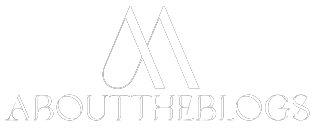In recent months, the tech industry has been abuzz with discussions surrounding a lawsuit filed against Smoothstack, a prominent software development and IT consulting firm. The lawsuit, initiated by former employees and clients, alleges a range of grievances from contractual breaches to unethical business practices. This article delves into the details of the Smoothstack lawsuit, explores the allegations made against the company, and examines the potential legal ramifications and broader implications for the industry.
Understanding Smoothstack and Its Operations
Smoothstack, founded in 2015, quickly rose to prominence within the IT sector for its specialized services in software development, IT consulting, and workforce management solutions. The company positioned itself as a provider of innovative technology solutions tailored to meet the evolving needs of businesses across various industries.
Overview of the Lawsuit and Allegations
The lawsuit against Smoothstack, filed in a federal court in [Insert Location], outlines several key allegations brought forth by plaintiffs, including former employees and clients:
- Breach of Contract: Numerous former employees claim that Smoothstack failed to honor contractual agreements related to compensation, benefits, and employment terms. Allegations suggest discrepancies between promised terms and actual practices within the company.
- Unethical Business Practices: Clients and former employees accuse Smoothstack of engaging in unethical practices, such as misrepresentation of capabilities, misleading advertising, and failure to deliver promised services. These allegations cast doubt on the company’s transparency and integrity in business dealings.
- Discriminatory Practices: There are claims of discriminatory hiring and employment practices within Smoothstack, with allegations of bias based on race, gender, and age. These accusations raise significant concerns about workplace diversity and inclusion policies within the company.
Legal Framework and Case Analysis
The legal basis of the lawsuit against Smoothstack revolves around several fundamental principles of contract law, business ethics, and employment regulations:
- Contract Law: Plaintiffs argue that Smoothstack’s alleged breaches of contract violate established legal standards governing agreements between employers and employees, as well as contractual obligations to clients.
- Business Ethics: Ethical considerations come into play concerning the allegations of misrepresentation and misleading advertising. Businesses are expected to uphold ethical standards in their communications and business practices to maintain trust and credibility.
- Employment Regulations: Claims of discriminatory practices highlight potential violations of federal and state laws prohibiting discrimination in employment. These allegations could lead to significant legal repercussions if proven in court.
Potential Legal Ramifications for Smoothstack
If the allegations against Smoothstack are substantiated in court, the company could face various legal consequences:
- Financial Penalties: Monetary damages may be awarded to compensate plaintiffs for financial losses incurred due to alleged breaches of contract or discriminatory practices.
- Reputational Damage: Negative publicity stemming from the lawsuit could tarnish Smoothstack’s reputation within the industry and among current and prospective clients.
- Regulatory Scrutiny: Regulatory bodies may investigate Smoothstack’s business practices further, potentially leading to additional sanctions or compliance requirements.
Industry Impact and Stakeholder Response
The Smoothstack lawsuit has broader implications for the tech industry and its stakeholders:
- Client Confidence: Clients may reassess their partnerships with Smoothstack and scrutinize the company’s ability to deliver on promises and uphold ethical standards.
- Employee Relations: Current and prospective employees may reconsider their employment options based on perceptions of Smoothstack’s workplace practices and corporate culture.
- Industry Standards: The lawsuit prompts discussions about industry standards for business ethics, contractual obligations, and diversity and inclusion policies within tech firms.
Future Outlook and Conclusion
As the lawsuit against Smoothstack unfolds, stakeholders in the tech industry will closely monitor developments and outcomes. The case underscores the importance of transparency, ethical business practices, and compliance with legal regulations in maintaining trust and credibility within the marketplace.
In conclusion, the Smoothstack lawsuit serves as a stark reminder of the legal and ethical responsibilities that companies must uphold in their operations. It highlights the potential consequences of failing to meet these standards and the impact on stakeholders, including employees, clients, and the broader industry. As the legal proceedings progress, further insights into the allegations and their implications will emerge, shaping future discussions on corporate governance and accountability in the tech sector.
